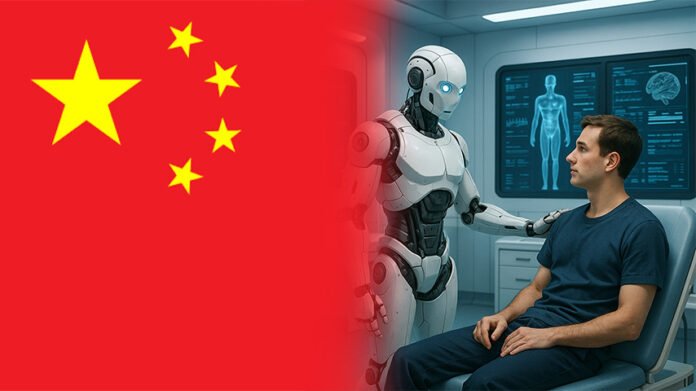China has launched the world’s first fully AI-powered hospital, called Agent Hospital, developed by researchers at Tsinghua University. This hospital has no human staff. Instead, it is completely run by artificial intelligence. The facility is entirely virtual, meaning it exists only in a digital environment, not a physical building. Inside this digital space, 14 AI doctors and 4 AI nurses handle up to 3,000 patient cases every day. These AI agents are trained using real medical data and are capable of diagnosing and treating patients, understanding test reports, and even showing emotions like empathy. In tests, these AI doctors scored 93% in the United States Medical Licensing Exam, a score that matches or even beats many human doctors.
China is also pushing the limits of robotic surgery. In one case, a hospital in Shanghai completed a remote surgery with the help of an AI-powered robotic system. The surgeon performed the procedure from over 5,000 kilometers away with great precision. The surgery took less time than usual and was completed without any issues. This success shows that AI may help bring expert medical care to remote areas in the future.
Agent Hospital is not just for patient care — it is also being used to train medical students. Through this virtual platform, students can learn to diagnose and treat a wide range of health problems in a safe, realistic setting. The AI gives them real-time feedback and helps improve their decision-making skills. This can be especially helpful for students in smaller towns or countries with limited training resources.
While the idea of AI doctors is exciting, experts are raising serious questions. Can a machine truly care for a patient the way a human does? What happens if the AI makes a mistake — who is held responsible? And how can we protect personal medical data in such systems? Many believe that AI should not replace human doctors but should assist them. Machines can handle routine tasks quickly and without fatigue, giving real doctors more time to focus on serious cases and emotional care.
China’s Agent Hospital gives us a glimpse of the future of healthcare. As AI becomes more powerful, we may soon see hospitals where machines and humans work side by side. The question is no longer whether AI will enter medicine — it’s how far we’re willing to let it go.



